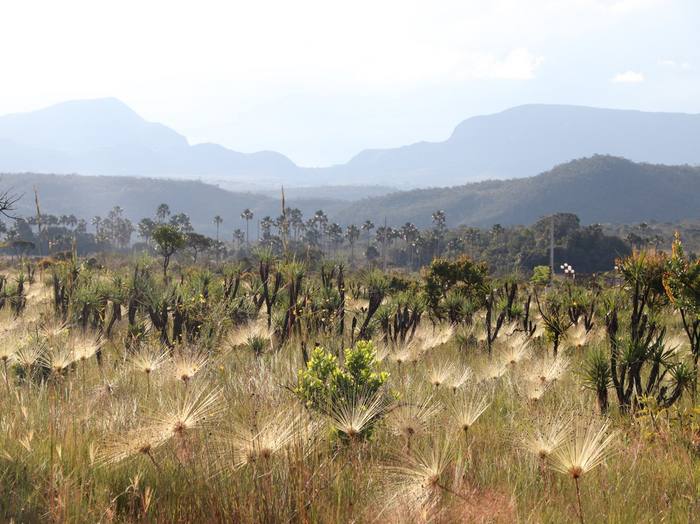Brazil must protect and restore its dry forests and savannas to achieve its climate goals, new research shows.

Credit: Tim Hill
Brazil must protect and restore its dry forests and savannas to achieve its climate goals, new research shows.
Attention in Brazil and worldwide often focusses on the Amazon rainforest – ignoring damage and destruction of these seasonally dry biomes, which contain vast biodiversity and carbon stores.
The new study, led by the universities of Exeter and Campinas, says cost-effective restoration of savannas and dry forests could lock in 1.5 billion tonnes of carbon.
But restoration takes time, and the researchers say protecting existing ecosystems is the best option for Brazil to reach its 2030 climate goals.
“Ongoing land-use change – especially the destruction of ecosystems to create agricultural land – makes Brazil the world’s fifth-biggest greenhouse gas emitting country,” said Dr Lucy Rowland, from Global Systems Institute at the University of Exeter.
“But Brazil also has huge potential for ecosystem restoration.
“Focus on the Amazon is understandable, but this has often simply displaced the problem of ecosystem destruction to the Cerrado (savanna) and the Caatinga (dry forest).
“This has been done on the assumption that these ecosystems are worthless – when in fact they have plant species diversity that rivals the Amazon.
“There is huge potential to restore these areas without negative impacts of food production or people’s livelihoods.”
Global carbon markets provide a financially viable way to fund large-scale restoration.
The study combined carbon prices with information such as land availability and carbon storage for 5,475 Brazilian municipalities to assess the potential costs and benefits of restoration.
“We argue that even with a sole focus on carbon, we must restore other tropical biomes – not just rainforests,” said Dr Fernanda de Vasconcellos Barros, also from the University of Exeter.
“Adding dry forests and savannas doubles the area which could be restored in a financially viable manner.
“Importantly, we show that conservation will be essential for Brazil to achieve it’s 2030 climate goal, because it can sequester up to 1.1 billion tonnes of carbon.
“Restoration takes longer, and so can have less impact by 2030, but in the long term restoration of the Cerrado and the Caatinga can draw down 1.5 billion tonnes of carbon, while restoration of the Amazon and Atlantic rainforests can sequester another 2.1 billion tonnes.”
The new study was funded by the Natural Environment Research Council (NERC) and the São Paulo Research Foundation (FAPESP).
The paper, published in the journal Science of The Total Environment, is entitled: “Cost-effective restoration for carbon sequestration across Brazil’s biomes.”
Journal
Science of The Total Environment
DOI
10.1016/j.scitotenv.2023.162600
Article Title
Cost-effective restoration for carbon sequestration across Brazil’s biomes
Article Publication Date
5-Mar-2023




